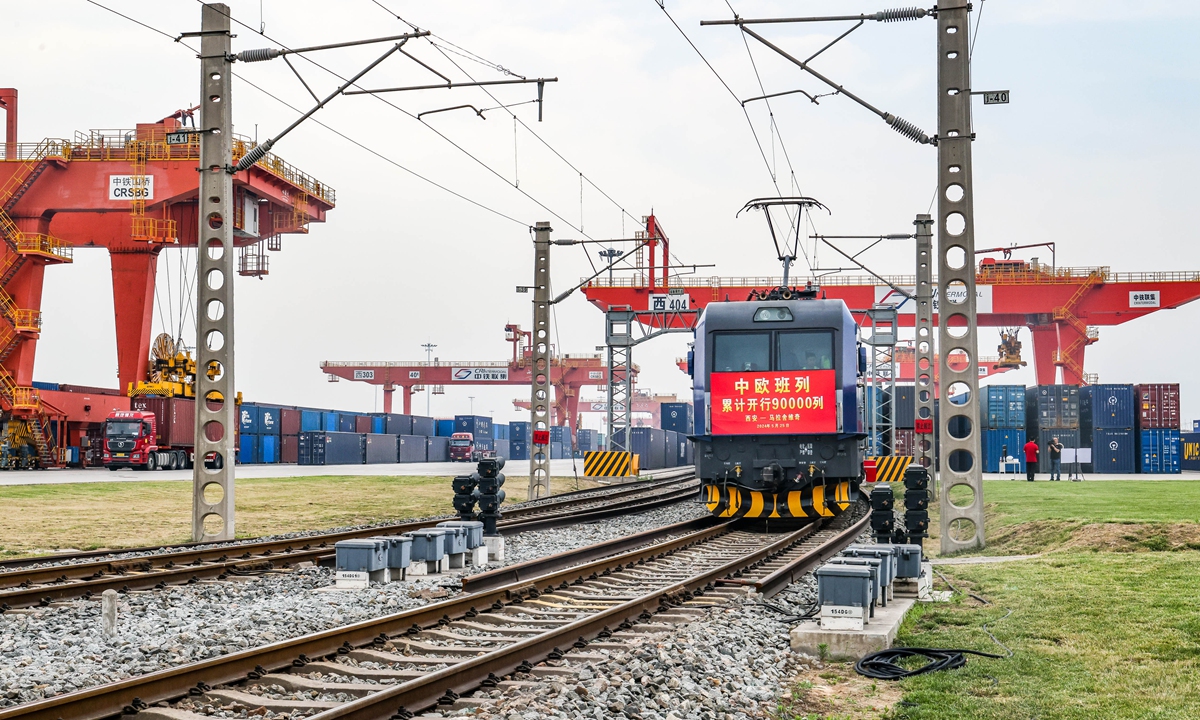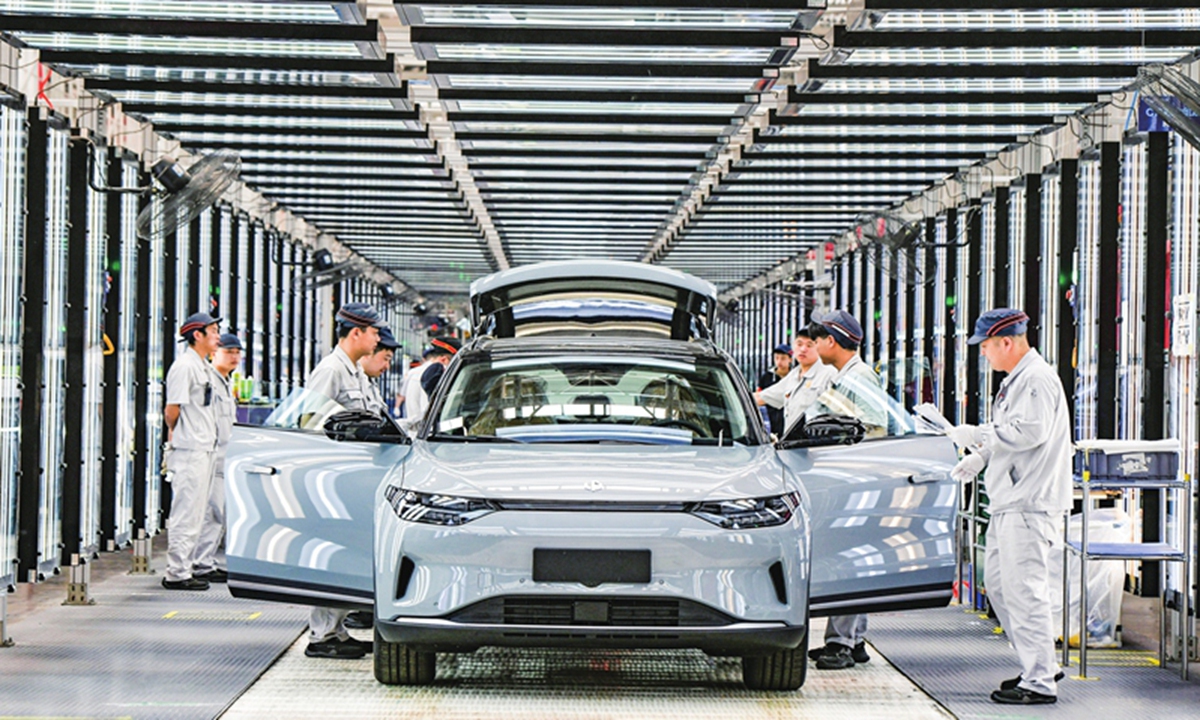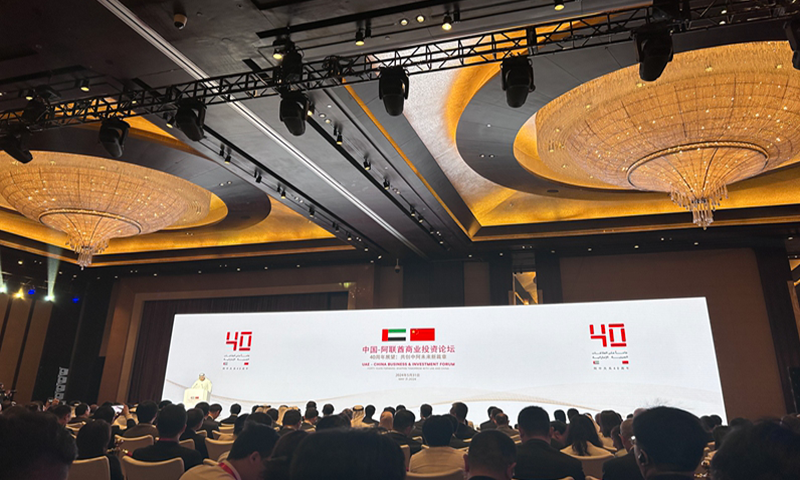
Freight train X8157, the 90,000th China-Europe freight train, heads to Malaszewicze, Poland from Xi'an, capital city of Northwest China's Shaanxi Province on May 25, 2024. Photo: VCG
Polish President Andrzej Duda arrived in Beijing on Saturday to kick off a five-day visit to China, which will end on June 26, according to the Xinhua News Agency.
Business representatives, a former Polish official and Chinese observers reached by the Global Times expressed high hopes that with Duda's ongoing visit, the two countries could enhance trade and economic cooperation, eyeing concrete cooperation and more measures to foster the joint building of the Belt and Road Initiative (BRI).
Duda's China visit comes amid an escalating trade row between China and the EU over the European Commission's proposal to levy high tariffs on electric vehicles imported from China, and it follows a visit to China by German Economy Minister Robert Habeck.
Amid rising uncertainties in China-Europe relations as some European countries are tilting toward conservatism, with some European politicians advocating "decoupling," Duda's visit naturally receives a lot of attention and is expected to play an important role in stabilizing China-Europe relations, Zhao Junjie, a research fellow at the Chinese Academy of Social Sciences' Institute of European Studies, told the Global Times on Sunday.
"It is hoped that Poland can be a facilitator for the stable and smooth development of China-EU ties," Zhao said.
Zhao noted that the two countries have a wide range of sectors where they can cooperate. These include coal, steel, chemicals, electronics, pharmaceuticals and autos, on top of agricultural cooperation.
"There is high hope that the two countries can reach some deals to further their pragmatic cooperation in various fields following the principle of seeking common ground while retaining independence and seeking win-win results via cooperation," Zhao said.
China and Poland have highly complementary economies, leading to vast potential for bilateral economic and trade cooperation, Janusz Piechocinski, former Polish deputy prime minister, told the Global Times in a recent exclusive interview, noting the landscape of bilateral cooperation is also evolving, and new areas for trade cooperation on the Polish side include cosmetics, medicine and information technology.
Representatives from the Chinese business community in Poland also expressed hopes that more deals could be signed this time to further explore the scope for cooperation in agriculture and under the BRI.
Han Baohua, president of the Chinese-Polish Chamber of Commerce, citing the strong complementarity between the two economies, expressed his hope that some concrete cooperation projects could be announced during Duda's visit to China.
Poland is a major agricultural producer. The country is home to many advanced processing techniques and technologies, and cooperation in these two sectors has been a main focus of ties between China and Poland, according to Han.
"The Polish government has attached great importance to supporting exports and attracting investment, and as such, having access to the China market is significant for the Poland and companies. Yet, it should be said that bilateral trade has yet to reach an ideal level," Han said.
"Under the BRI, Poland, as a key hub in the EU market, bears special significance for Chinese companies. Cooperation related to the BRI is conducive to the realization of the Polish government's desire to boost its export sectors, and it also contributes to Chinese companies' sustainable development in the Polish market and the broader EU market," Han noted.
In the past five years, bilateral trade has achieved an average annual growth rate of above 10 percent, with total trade reaching $42 billion in 2023, data showed.
China has for many years been Poland's second-largest trading partner, while Poland is China's largest trading partner in Central and Eastern Europe.
Also, some 90 percent of the China-Europe freight trains pass through Poland or have Poland as a destination.



